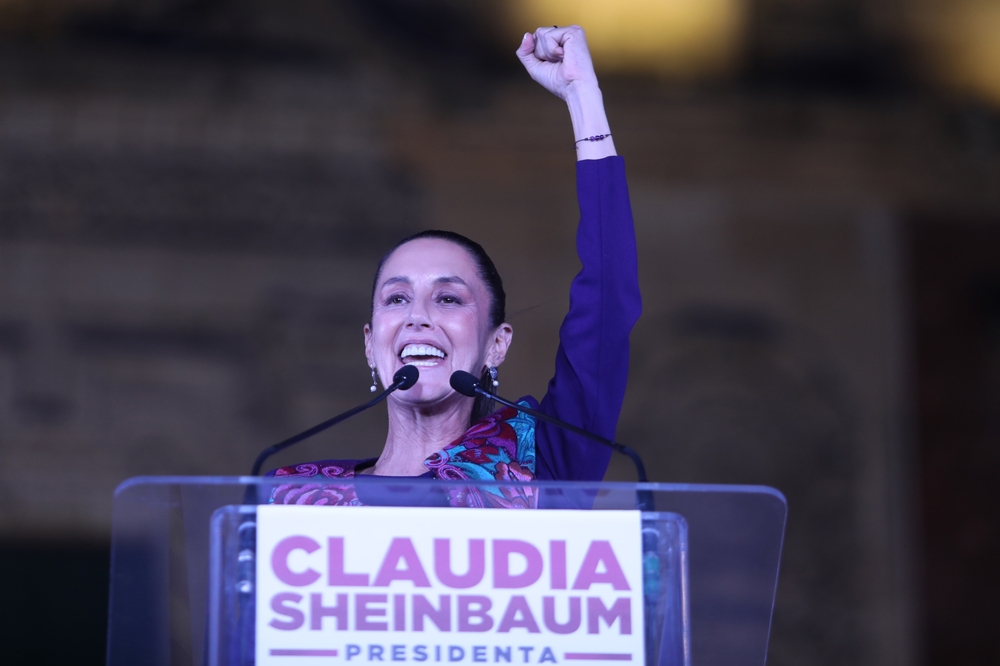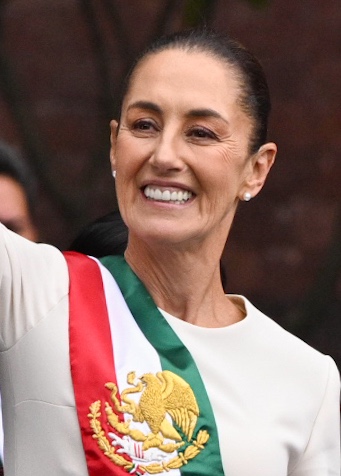Appointing Larry Summers our Treasury secretary would be a grave mistake, and a slap in the face to Mexico and those who struggle for economic justice on both sides of the border.
Summers, while serving as under secretary of the Treasury in 1995, engineered the destruction of Mexico’s economy by increasing interest rates to unmanageable levels—business and farm loans went from 11% to 56%, credit card rates from 7% to 61%, home loans from 5% to 75%, car loans from 7% to 91%. The result was massive human suffering and the forced migration of millions of economic refugees to the United States.
Although Wall Street banks profited handsomely, the impact of 1995 loan interest rate increases in Mexico was more than millions of people and businesses could handle. Thousands of farms and businesses, both large and small, went bankrupt. In 1995 alone over 12,000 of Mexico’s businesses filed for bankruptcy, and as economic activity came to a standstill and demand was cut, orders were canceled and plants operated at less than minimum levels. Idle capacity in many branches of the manufacturing sector increased to 70%. It became impossible for millions of workers to support their families by earning paychecks in their own country. Unable to earn enough to support their families, many of them migrated to the United States to find family wage work.
A report adopted by Mexico’s Senate on September 21, 2007 noted that Alan Greenspan gave Summers credit for the draconian interest rate measure and Greenspan wrote in his memoir:
That experience (the Mexican bail-out) formed a lasting bond between Rubin, Summers, and me … Larry could be shrewd too: it was his idea to put such a high interest rate on the Mexico loans that the Mexicans felt compelled to pay us back early.
Larry Summers’ tenure at Treasury the last time around was marked by enriching the relative few while devastating the very many. The U.S. citizenry voted for a change and a priority on Main Street over Wall Street. Policies that impoverish workers, whether here or in Mexico, do not reflect the change we voted for.
Surely the man we are so proud to have elected our president could choose, from among the many capable economists, one who values humanity.
(See letter below)
PLEASE URGE OBAMA TO APPOINT A TREASURY SECRETARY OTHER THAN LARRY SUMMERS
Larry Summers is on the Obama short list for appointment to secretary of the Treasury.
Such an appointment would be a grave mistake, and a slap in the face to Mexico and those who struggle for economic justice on both sides of the border.
Summers, while serving as under secretary of the Treasury in 1995, engineered the destruction of Mexico’s economy through forced increase of interest rates to unmanageable levels—business and farm loans went from 11% to 56%, credit card rates from 7% to 61%, home loans from 5% to 75%, car loans from 7% to 91%. The result was massive human suffering and the forced migration of millions of economic refugees to the United States.
Appointing Summers would signal a continuance of the greed superceding human dignity as the cornerstone of our foreign policy.
Please review the following background information on Mr. Summers and ask anyone you know on the transition team to advise against selecting Summers or write to the Obama site at http://change.gov/ on the "American Moment" section.
Thank you for your work.
In solidarity,
Peter Cervantes-Gautschi
Excerpt from "Wall Street and Immigration: Financial Services Giants Have Profited from the Beginning," Peter Cervantes-Gautschi, December 4, 2007, Americas Policy Program, Center for International Policy (CIP):
"On Dec. 22, 1994 the Mexican peso was devalued over 40%. This, coupled with an increase in the U.S. prime rate enacted by the U.S. Federal Reserve, rendered Mexico nearly bankrupt largely due to dollar-denominated bond debt to Wall Street banks.
The U.S. government got the International Monetary Fund and Canada to give Mexico money to put together a bailout package to pay its creditors, most of which were Wall Street banks. The International Monetary Fund contracted Mexico’s bailout loan to the U.S. Treasury Department. Acting in the interest of Wall Street creditors, Peter King got Congress to adopt legislation that imposed monthly oversight on the bailout implementation by the banking committee.
To get the bailout money, Mexico was required to meet stipulations that violated its own constitution, which limited foreign ownership of the banking industry to 5% and forbade home mortgage interest rates above 7%. The bailout package required that foreign banks get 49% of the banking market. Limits on interest rates for all loans were eliminated to pay off Citi, Chase Manhattan, Bank of America, JP Morgan, and the other foreign bond investors. Another stipulation on the bailout money required Mexico to put a cap on wages nationwide.
Although it was a major Mexican bond creditor, JP Morgan became Mexico’s financial adviser. An arrangement like this in the United States would have been seen as a blatantly illegal conflict of interest.
Mexico’s national bank was forced to raise the money to pay off the inflated bond debts to the foreign bond investors by dramatically increasing interest rates on the full spectrum of loans in Mexico.
Over the next two years interest rates on business and farm loans rose from an average of 11% to an average of 56%. Credit card debt interest rates went from 7% to 61%, interest rates on car loans went from 7% to 91%, and home loan interest rates rose from an average of 5% to 75%.
In the same period the Bank of America, Citibank, JP Morgan, Chase Manhattan, and HSBC acquired most of Mexico’s banking market.
The impact of 1995 loan interest rate increases was more than millions of people and thousands of businesses could handle. Thousands of farms and businesses, both large and small, went bankrupt. In 1995 alone, over 12,000 of Mexico’s businesses filed for bankruptcy, and as economic activity came to a standstill and demand was cut, orders were canceled and plants operated at less than minimum levels. Idle capacity in many branches of the manufacturing sector increased to 70%. It became impossible for millions of workers to support their families by earning paychecks in their own country. Unable to earn enough to support their families, millions of workers migrated to the United States to find family wage work.
The Wall Street banks profited handsomely. In 1998 for example, after recouping and profiting from their short-term bond investments through direct and enabled payments from the bailout package, JP Morgan and Citi owned over $4.1 billion dollars and $1.9 billion dollars respectively worth of loans in Mexico. A few years later Citi became the owner of 23.2% of the Mexican loan market through its acquisition of Banamex. The banking and finance sector rewarded the Republican members of the banking committees in Congress with millions of dollars in campaign contributions."
Excerpt from a special (translated to English) commission report adopted unanimously by the Mexican Senate on September 21, 2007:
"The previous support document offered detailed information about a meeting at Los Pinos between the president of Mexico and the under secretary of the U.S. Treasury, Larry Summers. During that meeting and against the advice of the Mexican team that was negotiating at that very moment in Washington, the decision was made to raise interest rates excessively during 1995. That information is in a memoir written by former U.S. Treasury Secretary Bob Rubin, now a chairman of Citigroup, a U.S. company that is the world’s largest financial institution …
In September 2007, the former president of the U.S. Federal Reserve also published his memoirs. Additional revelations appear there about the source of the decision to inordinately hike interest rates, a decision that was to the great detriment of Mexico. Alan Greenspan notes in his memoir:
That experience formed a lasting bond between Rubin, Summers, and me … Larry could be shrewd too: it was his idea to put such a high interest rate on the Mexico loans that the Mexicans felt compelled to pay us back early.
In other words, the Mexican government made an unacceptable deal with Under Secretary Summers, akin to what the mother country gave its colonies. Mexico was treated as if it were a country without a history, without prestige, and without institutions. In his memoir, Rubin comments that the result of his intervention in Mexico led one of his colleagues to declare triumphantly to the New York Times : ‘This was Bob Rubin’s Bosnia. And today he got the troops out.’ Never should the Mexican government have accepted that extremely high and abusive interest rate.
The gravest problem was that these very high interest rates influenced the rates for other loans made to Mexico and also rigidified high levels of domestic interest rates. Beginning in March 1995, interest rates in Mexico exploded. Rates of return went positive in real terms for the next 10 years, and this contributed to the double problem of excessively costly (and almost nonexistent) financing for Mexican companies and high earnings for those who had invested in Mexican bonds, which led to the overvaluation of the peso.
In his memoir, Rubin also acknowledges that the IMF was recommending lower interest rates, but in the end, that institution accepted the excessively high proposal. However, the IMF experts could not have been unaware of the very damaging effect that those interest rates would have for the Mexican economy."



